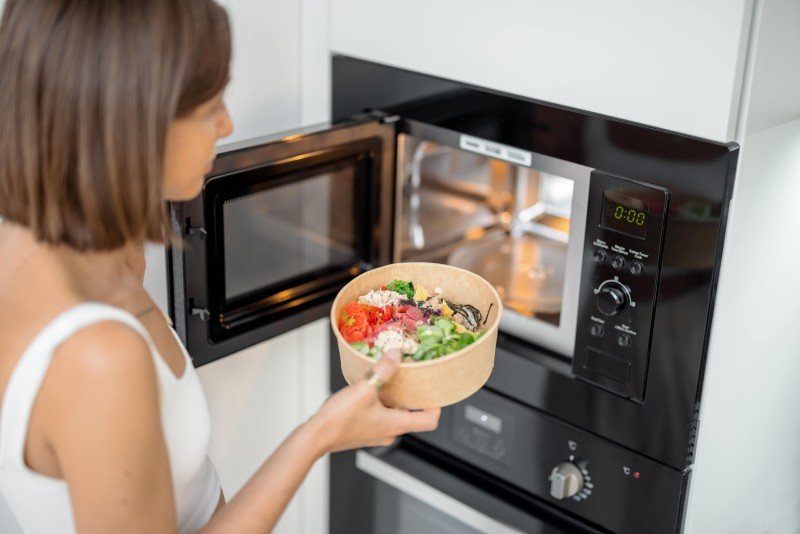The Comprehensive Guide to Sales Ovens: Understanding Their Importance, Types, and Best Practices
Sales ovens, a classification of industrial cooking equipment, are crucial gamers in the cooking and foodservice industry. These devices, designed to prepare food in big amounts effectively, are important in restaurants, catering services, and other food establishments. This post looks into the importance of sales ovens, their types, and best practices for picking and using them effectively.
What Are Sales Ovens?
Sales ovens, broadly defined, are cooking devices utilized mainly in commercial kitchens to prepare, bake, or heat various food items at scale. Their style permits them to deal with higher volume cooking compared to standard property ovens. Given the nature of food service, sales ovens frequently integrate innovative innovations that promote speed, performance, and even cooking.
Value of Sales Ovens in the Food Industry
Sales ovens play a pivotal role in food production for lots of factors:
- Efficiency: Sales ovens can prepare food more quickly and uniformly than conventional ovens, allowing chefs to prepare meals in less time.
- Consistency: With accurate temperature controls, sales ovens ensure that the food is cooked evenly every time, preserving quality throughout thousands of portions.
- Versatility: Many sales ovens can handle different cooking methods including baking, roasting, broiling, and even steaming, making them ideal for varied menus.
- Energy Savings: Modern sales ovens are frequently developed to be energy-efficient, reducing operational costs for businesses.
Kinds Of Sales Ovens
The marketplace uses a variety of sales ovens, each fit for specific cooking needs and kinds of food. Here are the most common types:
| Type of Oven | Description | Best For |
|---|---|---|
| Convection Ovens | Utilize a fan to circulate hot air, guaranteeing even cooking. | Baking and roasting products. |
| Combi-Ovens | A combination of convection and steam cooking, providing flexibility in cooking approaches. | Varied menus requiring steaming and baking. |
| Conveyor Ovens | Use a moving belt to continually prepare food, ideal for high-volume operations. | Junk food and pizza. |
| Deck Ovens | Feature different compartments (decks) that can be separately controlled, using high efficiency. | Craftsmen bread and pastries. |
| Rotisserie Ovens | Created to slowly roast meat on a spit, offering tender and juicy outcomes. | Roasted meats. |
Choosing the Right Sales Oven
Selecting the proper sales oven for a particular organization needs consideration of numerous elements:
- Volume Needs: Assess the volume of food that requires to be prepared. Higher volume indicates selecting conveyor or combi-ovens.
- Menu Diversity: Understanding what type of dishes will be prepared can guide the choice procedure. For Fan Ovens For Sale , a bakery might require a deck oven, while a diner may benefit from a stove.
- Area Availability: Measure kitchen space to ensure the ovens fit properly and have actually required ventilation.
- Budget plan: Commercial ovens can vary significantly in rate, so develop a budget plan that considers long-lasting operational cost savings.
- Energy Efficiency: Opt for ovens that have energy scores to keep energy expenses manageable.
Best Practices for Using Sales Ovens
Successfully operating a sales oven includes more than easy usage. Here are some best practices to keep in mind:
- Regular Maintenance: Schedule routine maintenance to clean and check the performance of the oven. This makes sure durability and performance.
- Preheating: Always pre-heat the oven to the desired temperature level before putting food inside for consistent cooking outcomes.
- Use Thermometers: For accuracy, use an oven thermometer to ensure that temperature levels remain consistent, particularly for baking.
- Follow Cooking Times: Adhere to recommended cooking times based on the kind of food being prepared. Modifications may be required for different ovens.
- Avoid Overcrowding: Ensure adequate area around food products in the oven to permit proper air circulation.
The Future of Sales Ovens
As innovation advances, so do the abilities of sales ovens. Innovations such as wise technology, energy-efficient styles, and enhanced safety functions are becoming more prominent. These developments assure to improve cooking efficiency while also fulfilling sustainability objectives.
FAQs about Sales Ovens
Q1: How do I tidy my sales oven?
A: Regular cleansing includes removing any food debris, cleaning down surfaces with non-corrosive cleaners, and following specific cleansing recommendations from the maker.
Q2: What's the lifespan of a commercial oven?
A: Typically, a well-maintained business oven can last anywhere from 10 to 20 years, depending on usage and maintenance.
Q3: Can sales ovens be used for baking?
A: Yes, lots of kinds of sales ovens, particularly convection and deck ovens, are particularly designed for baking a series of products.
Q4: Are there energy-efficient options for sales ovens?
A: Yes, a number of makers provide energy-efficient designs that lower energy intake without compromising performance.
Q5: How often should I conduct upkeep on my sales oven?
A: It's recommended to carry out regular maintenance checks monthly or quarter, depending on usage levels. Additionally, a comprehensive assessment must happen a minimum of yearly.
Sales ovens are essential in the modern culinary landscape. Their capability to prepare big quantities of food effectively makes them essential for dining establishments, catering services, and other food establishments. By understanding the numerous types, choosing the best oven, and adhering to best practices, food service companies can enhance their cooking procedures, enhance their offerings, and ultimately delight their clients with exceptional cooking developments.

